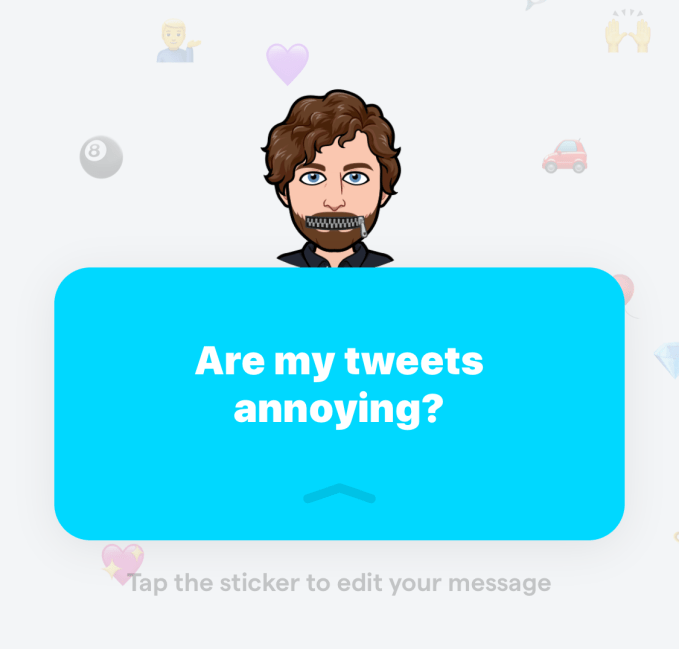The basis of the classic James Bond film “Tomorrow Never Dies” is an evil media mogul who instigates war between the U.K. and China because it will be great for TV ratings. There’s been a wake-up call recently that our most popular social networks have been indirectly designed to divide populations into enemy camps and reward sensational content, but without the personal responsibility of Bond’s nemesis because they’re algorithmically driven.
(This is part five of a seven-part series about virtual worlds.)
The rise of “multiverse” virtual words as the next social frontier offers hope to one of the biggest crises facing democratic societies right now. Because the dominant social media platforms (in Western countries at least) monetize through advertising, these platforms reward sensational content that results in the most clicks and shares. Oversimplified, exaggerated claims intended to shock users scrolling past are best practices for individuals, media brands and marketing departments alike, and social platforms intentionally steer users toward more extreme content in order to captivate them for longer.
Our impending cultural shift to socializing equally as often through virtual worlds could help rescue us from this constant conflict of interest between what we recognize as healthy interactions with others and how these social apps incentivize us to behave.
Virtual worlds can have advertisements within them, but the dominant monetization strategies in MMOs are upfront purchase of games and in-game transactions. Any virtual world that gains enough adoption to compete as a social hub for mainstream society will need to be free-to-play and will earn more money through in-world transactions than from ads.
from Social – TechCrunch https://ift.tt/eA8V8J Multiverse virtual worlds will be healthier for society than our current social networks Eric Peckham https://ift.tt/3advCe0
via IFTTT






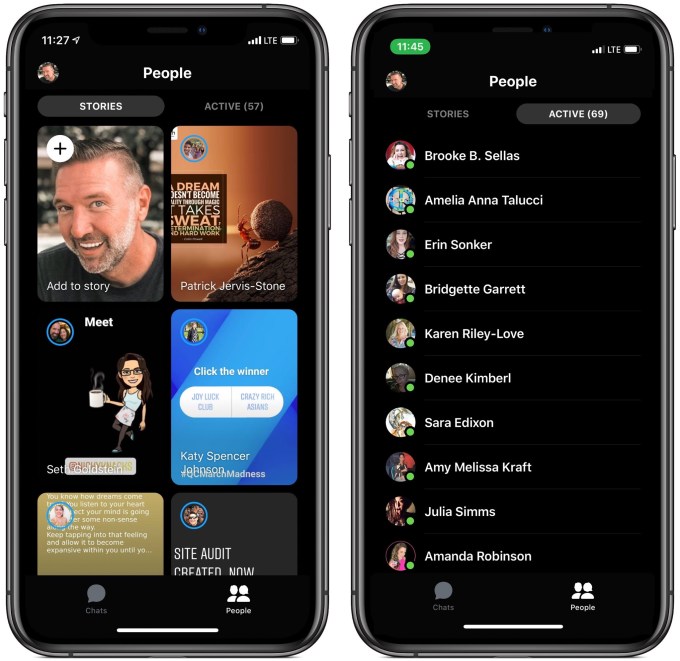
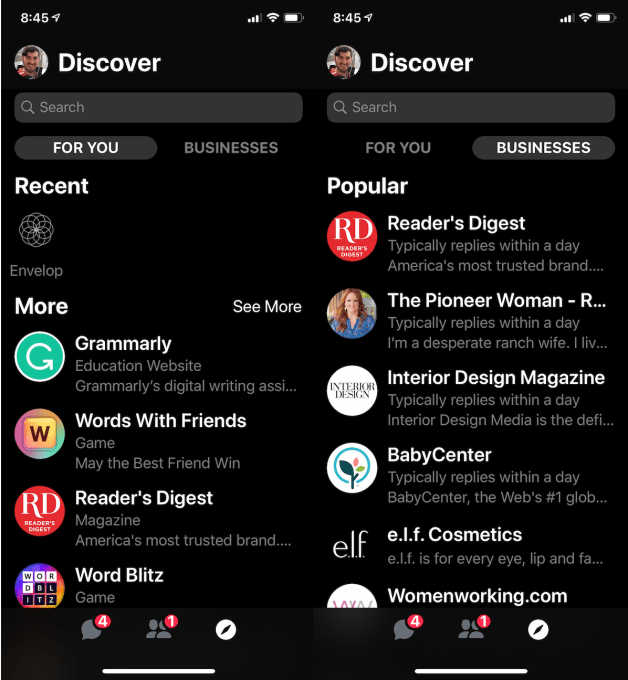
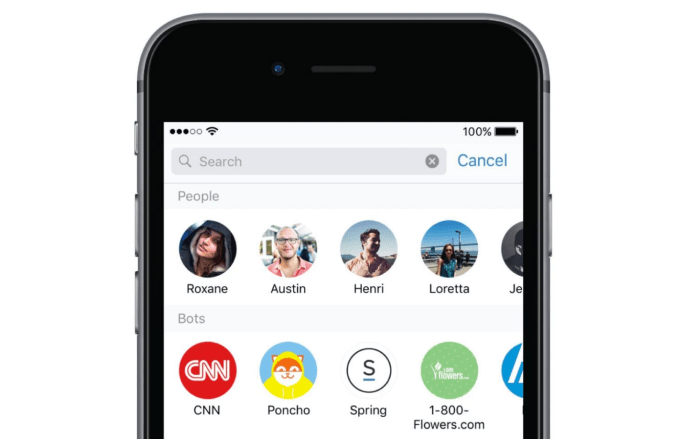

 But while that centralized all-in-one style fit Chinese culture, Western markets have experienced more of an unbundling with different apps emerging to handle each of these use cases. Facebook’s constant privacy scandals and increasing anti-trust scrutiny also inhibited this approach with Messenger. Users and the US government weren’t ready to trust Facebook to handle so much of our daily lives. Facebook Messenger also has to jockey with competition like iMessage and Snapchat that could undercut it if it gets too bloated.
But while that centralized all-in-one style fit Chinese culture, Western markets have experienced more of an unbundling with different apps emerging to handle each of these use cases. Facebook’s constant privacy scandals and increasing anti-trust scrutiny also inhibited this approach with Messenger. Users and the US government weren’t ready to trust Facebook to handle so much of our daily lives. Facebook Messenger also has to jockey with competition like iMessage and Snapchat that could undercut it if it gets too bloated.

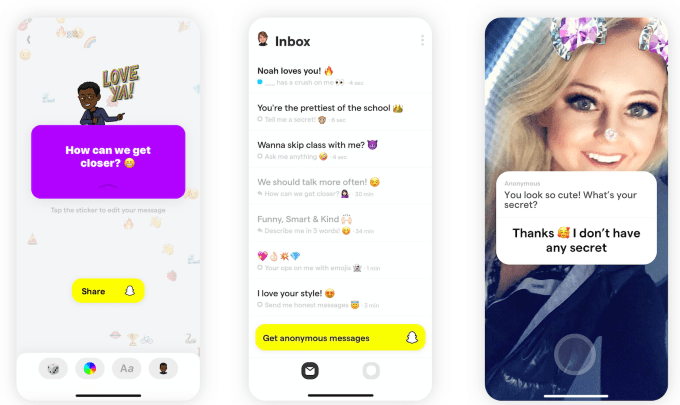

 That June, Yolo quietly raised a $2 million seed round thanks to its sudden success. The team had been grinding since 2017 on a video reactions app called Popshow funded by a small pre-seed round from SV Angel, Shrug Capital and Product Hunt’s Ryan Hoover. They’d previously built music video-making app
That June, Yolo quietly raised a $2 million seed round thanks to its sudden success. The team had been grinding since 2017 on a video reactions app called Popshow funded by a small pre-seed round from SV Angel, Shrug Capital and Product Hunt’s Ryan Hoover. They’d previously built music video-making app 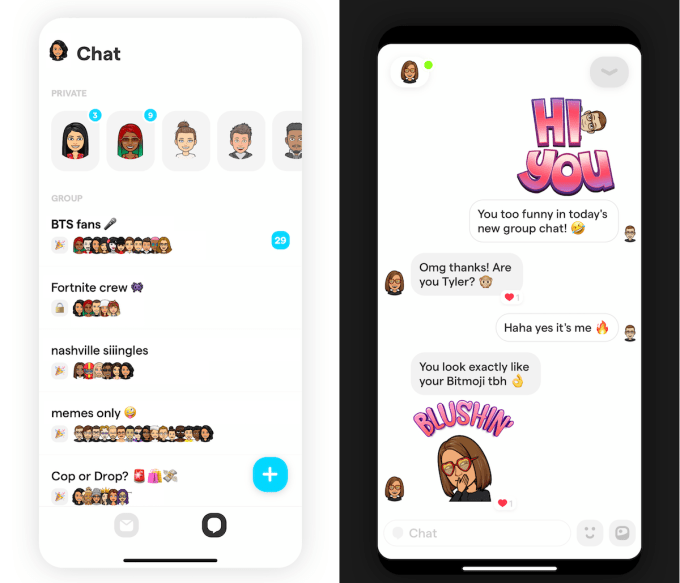
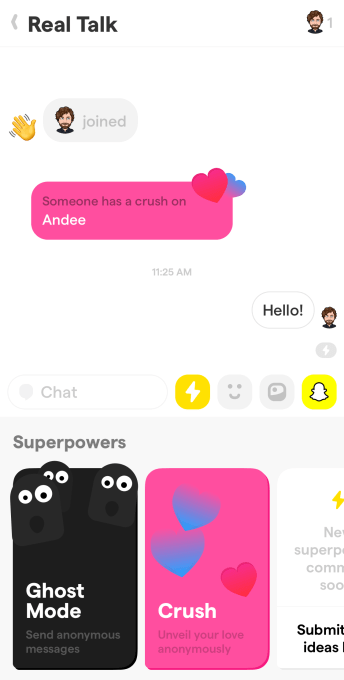 That cash fueled the release of Yolo’s new group chat feature. You can set up a chat room, give it a name and generate an invite URL or sticker you can post on Snapchat, just like its previous question feature. Friends or friends of friends that are already in can join the group chat, represented by their Bitmoji instead of their name. Yolo suggests people join the more open “party mode” chats where their friends are active.
That cash fueled the release of Yolo’s new group chat feature. You can set up a chat room, give it a name and generate an invite URL or sticker you can post on Snapchat, just like its previous question feature. Friends or friends of friends that are already in can join the group chat, represented by their Bitmoji instead of their name. Yolo suggests people join the more open “party mode” chats where their friends are active.